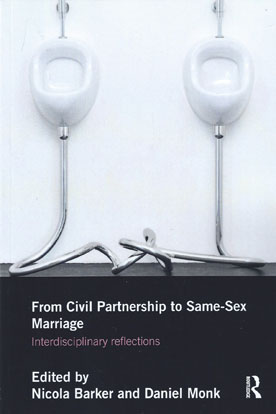
The UK’s Civil Partnership Act 2004 and the Marriage (Same-Sex) Act 2014 are important legal, social and historical landmarks. For, beyond their practical implications, same-sex relationship recognition throughout the western world has become a key site of political contestation rich in symbolic, material and cultural meanings.
While fiercely opposed by many, within mainstream narratives they are often represented as a victory in a legal reform process that commenced with the decriminalisation of homosexuality. For others, however, they represent a problematic and ambivalent political engagement with the institution of marriage. These reforms, then, provide an invaluable opportunity to engage with issues that arguably affect everyone, regardless of sexual orientation or relationship status.
This collection brings together leading scholars and commentators from a wide range of professions and disciplinary backgrounds to critically reflect on the first ten years of the Civil Partnership Act and the introduction of same-sex marriage: some providing a close reading of their judicial interpretation, and their media representation; some locating them within the context of British political history and the history of sexuality; and some exploring their wider implications for struggles around homosexuality within the Commonwealth.Marking the 10th anniversary of the first civil partnership ceremonies, and coinciding with the first same-sex marriages, this critical reflection on the first decade of same-sex relationship recognition provides a much needed foundation for encouraging and suggesting new ways of engaging with this reality.